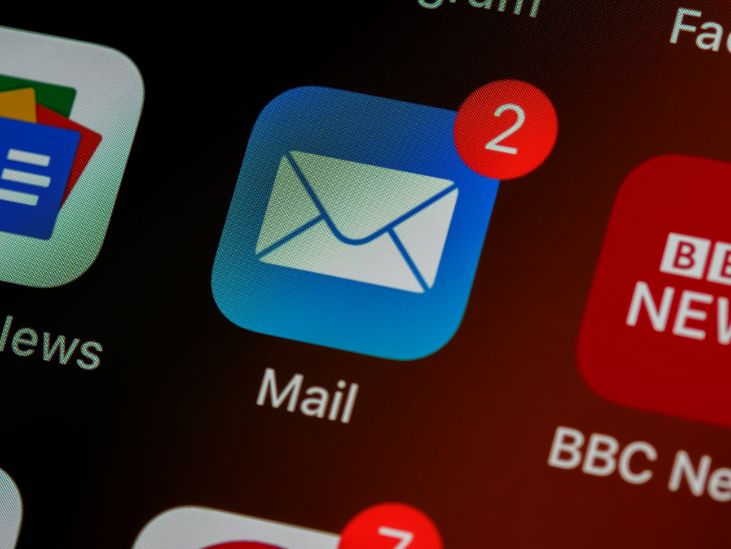Learn when to call and when to email your clients, and how both methods can help you make a good first impression.
Nowadays, you have a ton of options available to you for communicating with clients or coworkers, from emails and Slack to phone calls and Zoom. But for call-averse Millennials and members of Generation Z, an email will win out nine times out of ten.
That’s the stereotype, at least. However, the method of communication used when first getting in touch with a prospect can significantly impact how well the conversation goes. Therefore, in order to assist you in making the best decision, here is our blog post explaining when a call or email is best in sales.
When is a Phone Call Better Than An Email?
There are three situations when you should call others rather than email.
When You Want Someone to Feel Valued
Have you ever sent someone your call booking link and had them balk at the requirement to schedule themselves into your calendar?
You most likely have a position on the (hot) topic under discussion. But regardless of which side you fall on, there’s one important takeaway in the back-and-forth that many often miss: people want to feel important.
People want to feel valued and respected, whether they are coworkers, clients, investors, team members, or employees. Consider the following situations before picking up the phone.
- You’re covering something complicated
Emails and phone calls are both excellent for having complex conversations, but phone calls can help you feel less frustrated when having such a conversation. Real-time troubleshooting, for instance, enables clients to ask questions, describe their problems, and find a solution all within the same conversation when you need to help them with a problem.

A customer’s (or teammate’s) satisfaction—and sense of value—will increase with how quickly you address their issue. Positive customer experiences improve customer loyalty and trust.
- When the matter is urgent
One crucial question you must ask yourself when deciding whether to email or call your contact is whether the situation is urgent.
When you need a quick response to a message that needs to be delivered immediately, calling is the best option. While a 24-hour response time in email and text messaging etiquette is acceptable, phone calls happen immediately, and if the person you’re calling doesn’t answer, you can still leave a voicemail message outlining the urgency of the situation.
- If strong feelings are involved
It is best to call if you suspect that negative emotions are present in order to avoid making assumptions and misinterpretations. Strong emotions, such as distress or anger, can harm a business relationship if handled improperly.
When I was dealing with dissatisfied clients or stressful situations in the early years of my career, I typically resorted to sending emails instead of texts because it felt somewhat protective of me from the negative emotions of others.
However, as my confidence grew, I discovered that a phone call was far more effective than an in-person meeting for actually resolving a client’s issues as opposed to merely diverting them.
Jumping on a call had two advantages. First of all, it let me dig into the scenario a bit deeper to understand what was really bothering the client — sometimes it takes some detective work to understand what lies at the core of someone’s frustration. Second, it enabled me to reassure the client that the issue would be resolved by providing clear explanations and speaking in a considerate manner.
You can record your calls to get as much documentation as email if you need a record of your conversation in case there is backlash.
- When you want to increase your connection
It’s simple to fall back on the simplest form of communication during a busy workday, whether it’s a quick email or a Slack direct message. However, a recent study found that switching to text-based communication sacrifices connection, a critical component of human interaction.

According to the study, even though 71% of respondents said they’d prefer email to a call when communicating with a stranger or an old friend, picking up the phone actually made them feel significantly more connected. (They didn’t take any longer to call than they did to send an email, either.)
Participants consistently rated phone conversations more favorably than email exchanges when Amit Kumar and Nicholas Epley, the study’s researchers, asked them to rate on a scale of one to nine how strongly they felt a connection and how deeply they reconnected. Emails were perceived as slightly less awkward than phone calls, but the difference was not very noticeable.
Of course, you don’t need to feel a strong sense of connection every time you interact with someone. It’s totally acceptable to send an email with a brief project update or query. However, if you want to strengthen your relationship with someone (short-term or long-term), don’t always send quick messages.
Of course, this doesn’t just apply to total strangers or old friends; it’s also crucial to keep in mind at work.
- You’re coaching or connecting with your team
Take the time to place a voice or video call with your teammate whenever you can, whether you’re giving them feedback, conducting a weekly 1:1, or coaching a new team member.
Sending a pre-recorded video or an asynchronous note might seem simpler, but doing so will prevent you from fostering relationships. When working on a remote team, it can be all too easy to put off a catch-up call with a coworker, but having a connection to our coworkers has long-term advantages. Happy, present, and more successful teams are more likely to feel connected to one another.
It’s time well spent if you’re a leader.
- You want to build rapport with customers
Some of OpenPhone’s first users have evolved into some of our biggest supporters.
That is a result of our efforts to establish a connection with them right away. In addition to providing them with a direct line to us in times of need, we also frequently jumped on calls with them to solicit feedback, address their issues, and simply get to know them.

You Have Good News to Share
Are you prepared to make a job offer? giving a worker a raise? Your fundraising campaign is over? Pick up the phone!
You have a special chance to connect when you share the good news. Researchers have discovered that sharing good news together can deepen relationships, increase optimism, and reduce stress and anxiety.
When You Need to Make Your Case
We all appreciate a good copywriter, but speeches are more effective at motivating people than company-wide emails for a reason. Martin Luther King Jr., Nelson Mandela, and others speak, you cannot help but be moved., or You can clearly hear every emotion in Alexandria Ocasio-Cortez’s voice, including bravery, rage, and urgency. You feel motivated to act as a result.
There will be many occasions as a business owner where you’ll need to be your own strongest supporter or advocate.
When that happens, whether you’re speaking with clients, investors, or your own teams, choose to meet in person or over the phone.
- When you’re pitching someone
The ability to express and read emotion is essential when making a sales pitch to a client, investor, or potential employee. And unfortunately, even with the helpful use of emojis, text-based communication leaves too much open to interpretation.
It can be simple to send an email when pitching, almost as a way out. I used to send pricing sheets to potential clients who expressed interest in my services early in my career and then call it a day, but I would later lament the large number of those clients who had simply disappeared. But in actuality, I think my style of communication was to blame.
- To rally the troops
At all times when you need to make a significant change at work, keep in mind that nothing changes in a vacuum. Change management best practices should be kept in mind whether you are changing your processes or your pricing.
That means communicating the importance of a change ahead of implementing it. Don’t just email your team; call the managers and explain the reason behind the change. By picking up the phone, you also give them a chance to express their opinions and ask questions.
You increase your chances of a smooth transition and higher adoption of new processes by bringing teams on board early.
- When you need to brainstorm
When holding a strategy meeting in person is not an option, phone calls are preferable to emails for brainstorming purposes. Phone conversations improve cross-functional collaboration because they let team members bounce ideas off of each other more openly and at the moment.
Coworkers have the opportunity to present their most intriguing, unfinished ideas during a call. Not everyone will be able to see the potential of an idea when it is reduced to a list of bullet points. But when someone has the opportunity to present their idea with all the enthusiasm and passion that goes along with it, others are more likely to agree with it.

When is An Email Better Than a Phone Call?
You should use emails to communicate with others in four different circumstances.
When the Person Prefers E-mail
It is simpler to comprehend the tone, intention, and meaning behind written communication when you and your partner have a strong relationship and a sense of trust.
If you’re attempting to establish a rapport with someone and they request that you send them an email, start there and cultivate your relationship via email until they are prepared to speak with you on the phone. Ignoring someone’s preferences right away won’t help you win them over.
When the Message is Simple
Simple conversations, such as data sharing or sharing the who, what, when, and where, can frequently be done by email and are simple to forward or reshare to anyone who needs the information.
But if the matter is still unclear or unresolved after two email exchanges, it might be preferable to pick up the phone or meet in person. To make a choice, use the context and your best judgment.
When You Need to Update Several People at Once
An email and subsequent email threads may help keep everyone informed if you need to update a group of people but are unable to schedule a meeting.
When You Want to Follow Up a Conversation Confirming the Details
Particularly when you call someone for the first time, it might be beneficial to record the conversation. They might not have been emotionally prepared to talk about the subject if you catch them off guard. It can be beneficial to follow up on lengthy conversations with an email summary to make sure you’re on the same page.
When You Want An Electronic Paper Trail
It can be necessary to put information in writing at times, whether for legal or non-legal reasons. It gives a background so that there is evidence of the interaction in case questions are asked later.

However, if it’s something you wouldn’t want to appear in court, on the news, or in your boss’s inbox, think twice before sending it.
Is One Better Than the Other?
I’ll be completely honest right now and say that I am a Millennial by definition. I do have a strong connection to my smartphone and other electronics, but I also understand the need for using less advanced communication techniques.
We should really be asking ourselves which approach is best for the current circumstance when we pose this question to ourselves. Here are a few quick ideas to illustrate how an email might better serve you, or if calling someone will work better:
Advantages of Email
- Can send to multiple people at one time
- Recipients can reply at their leisure
- Ideal for sending simple messages
Disadvantages of Email
- Easier to ignore than phone calls
- The tone of voice is lost
- Can use up valuable time with back-and-forth emails
Advantages of Phone Calls
- Personality and tone of voice are easier to showcase
- Ideal for relationship building
- Able to explain complex ideas and establish two-way communication

Disadvantages of Phone Calls
- Potential to disrupt someone’s workflow or schedule
- Requires more effort than email
- Need for quiet space to conduct the conversation
Using Both is Ideal
Therefore, if I had to choose again, would a phone call or an email? To ask if the right hand is superior to the left is to pose this question. Framing it the “email vs phone call” way also implies that it can only be one or the other. Both are necessary for effective communication in the workplace of today.
An effective asynchronous communication method is email. No worries about our schedules lining up prevent us from communicating. The recipient can also view documents and participate in writing and editing, which is not possible with phone calls.
A phone call can help clarify issues and provide guidance on how to revise a document when two people are having trouble communicating their ideas in a way that text alone cannot. Calls also establish a human presence behind the text, which is another benefit.

